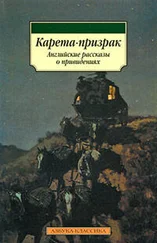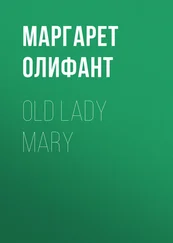Маргарет Олифант - Brownlows
Здесь есть возможность читать онлайн «Маргарет Олифант - Brownlows» — ознакомительный отрывок электронной книги совершенно бесплатно, а после прочтения отрывка купить полную версию. В некоторых случаях можно слушать аудио, скачать через торрент в формате fb2 и присутствует краткое содержание. Жанр: foreign_prose, literature_19, foreign_antique, на английском языке. Описание произведения, (предисловие) а так же отзывы посетителей доступны на портале библиотеки ЛибКат.
- Название:Brownlows
- Автор:
- Жанр:
- Год:неизвестен
- ISBN:нет данных
- Рейтинг книги:5 / 5. Голосов: 1
-
Избранное:Добавить в избранное
- Отзывы:
-
Ваша оценка:
- 100
- 1
- 2
- 3
- 4
- 5
Brownlows: краткое содержание, описание и аннотация
Предлагаем к чтению аннотацию, описание, краткое содержание или предисловие (зависит от того, что написал сам автор книги «Brownlows»). Если вы не нашли необходимую информацию о книге — напишите в комментариях, мы постараемся отыскать её.
Brownlows — читать онлайн ознакомительный отрывок
Ниже представлен текст книги, разбитый по страницам. Система сохранения места последней прочитанной страницы, позволяет с удобством читать онлайн бесплатно книгу «Brownlows», без необходимости каждый раз заново искать на чём Вы остановились. Поставьте закладку, и сможете в любой момент перейти на страницу, на которой закончили чтение.
Интервал:
Закладка:
Mrs. Oliphant
Brownlows
CHAPTER I.
MR. BROWNLOW’S MONEY
Every body in the neighborhood was perfectly aware what was the origin of John Brownlow’s fortune. There was no possibility of any mistake about it. When people are very well known and respectable, and inspire their neighbors with a hearty interest, some little penalty must be paid for that pleasant state of affairs. It is only when nobody cares for you, when you are of no importance to the world in general, that you can shroud your concerns in mystery; but the Brownlows were very well known, much respected, and quite unable to hide themselves in a corner. In all Dartfordshire there was no family better known; not that they were county people, or had any pretensions to high connection, but then there was not one family in the county of whom John Brownlow did not know more than they knew themselves, and in his hands, and in the hands of his fathers before him, had reposed the papers and affairs of all the squires about, titled or otherwise, for more years than could be counted. It was clever of the Brownlows to have had so much business in their hands and yet not to be rich; but virtue, when it is exceptional, is perhaps always a little extreme, and so it is probable that an honest lawyer is honester than most honest men who have no particular temptation. They were not rich, and yet, of course, they were far from being poor. They had the kind of substantial old brick house, standing close up to the pavement in the best end of the High Street of Masterton, which would be described as a mansion in an auctioneer’s advertisement. It was very red and infinitely clean, and had a multitude of windows all blinking in the sun, and lighting up into impromptu illuminations every winter afternoon, when that blazing red luminary went down, not over the river and the open country, as he ought to have done, but into the rectory garden, which happened to lie in his way as he halted along toward the west. The Brownlows for generations back had lived very comfortably in this red house. It had a great, rich, luxuriant, warm garden behind, with all sorts of comforts attached to it, and the rooms were handsome and old-fashioned, as became a house that had served generations; and once upon a time many good dinners, and much good wine, and the most beautiful stores of fine linen, and crystal, and silver were in the house, for comfort, and not for show. All this was very well, and John Brownlow was born to the possession of it; but there can be no doubt that the house in the High Street was very different from the house he now inhabited and the establishment he kept up in the country. Even the house in the High Street had been more burdened than was usual in the family when it came to his turn to be its master. Arthur, the younger brother, who was never good for much, had just had his debts paid for the second time before his father died. It was not considered by many people as quite fair to John, though some did say that it was he above all who urged the step upon old Mr. Brownlow. Persons who professed to know, even asserted that the elder son, in his generosity, had quite a struggle with his father, and that his argument was always “for my mother’s sake.” If this, was true, it was all the more generous of him, because his mother was well known to have thought nothing of John in comparison with the handsome Arthur, whom she spoiled as long as she lived. Anyhow, the result was that John inherited the house and the business, the furniture and old crystal and silver, and a very comfortable income, but nothing that could be called a fortune, or that would in any way have justified him in launching out into a more expensive description of life.
At this time he was thirty at least, and not of a speculative turn of mind; and when old Mrs. Thomson’s will—a will not even drawn up in his office, which would have been a kind of preparation—was read to him, it is said that he lost his temper on the occasion, and used very unbecoming language to the poor woman in her coffin. What had he to do with the old hag? “What did she mean by bothering him with her filthy money?” he said, and did not show at all the frame of mind that might have been expected under the circumstances. Mrs. Thomson was an old woman, who had lived in a very miserly sort of way, with an old servant, in a little house in the outskirts of the town. Nobody could ever tell what attracted her toward John Brownlow, who never, as he himself said, had any thing to do with her; and she had relations of her own in Masterton—the Fennells—who always knew she had money, and counted upon being her heirs. But they were distant relations, and perhaps they did not know all her story. What petrified the town, however, was, when it was found out that old Mrs. Thomson had left a fortune, not of a few hundreds, as people supposed, but of more than fifty thousand pounds, behind her, and that it was all left in a way to John Brownlow. It was left to him in trust for Mrs. Thomson’s daughter Phœbe, a person whose existence no one in Masterton had ever dreamed of, but who, it appeared had married a common soldier, and gone off with him ages before, and had been cursed and cast off by her hard-hearted mother. That was long, long ago, and perhaps the solitary old creature’s heart, if she had a heart, had relented to her only child; perhaps, as John Brownlow thought, it was a mere suggestion of Satan to trouble and annoy him, a man who had nothing to do with Phœbe Thomson. Anyhow, this was the substance of the will. The money was all left to John Brownlow in trust for this woman, who had gone nobody knew where, and whose very name by marriage her mother did not state, and nobody could tell. If Phœbe Thomson did not make her appearance within the next twenty-five years, then the money was to pass to John Brownlow and his heirs in perpetuity beyond all power of reclamation. This was the strange event which fell like a shell into the young lawyer’s quiet life, and brought revolution and change to every thing around.
He was very much annoyed and put out about it at first; and the Fennells, who had expected to be Mrs. Thomson’s heirs, were furious, and not disinclined to turn upon him, blameless as he was. To tell the truth, theirs was a very hard case. They were very poor. Good-for-nothing sons are not exclusively reserved for the well-to-do portion of the community; and poor Mrs. Fennell, as well as the Brownlow family, had a good-for-nothing son, upon whom she had spent all her living. He had disappeared at this time into the darkness, as such people do by times, but of course it was always on the cards that he might come back and be a burden upon his people again. And the father was paralytic and helpless, not only incapable of doing any thing, but requiring to have every thing done for him, that last aggravation of poverty. Mrs. Fennell herself was not a prepossessing woman. She had a high temper and an eloquent tongue, and her disappointment was tragic and desperate. Poor soul! it was not much to be wondered at—she was so poor and so helpless and burdened; and this money would have made them all so comfortable. It was not that she thought of herself, the poor woman said, but there was Fennell, who was cousin to the Thomsons, and there was Tom out in the world toiling for his bread, and killing himself with work. And then there was Bessie and her prospects. When she had talked it all over at the highest pitch of her voice, and stormed at every body, and made poor Fennell shake worse than ever in his paralytic chair, and overwhelmed Bessie with confusion and misery, the poor woman would sit down and cry. Only one thousand pounds of it would have done them such a great deal of good; and there was fifty thousand, and it was all going to be tied up and given to John Brownlow. It was hard upon a woman with a hot head and a warm heart, and no temper or sense to speak of; and to storm at it was the only thing she took any comfort from, or that did her any good.
Читать дальшеИнтервал:
Закладка:
Похожие книги на «Brownlows»
Представляем Вашему вниманию похожие книги на «Brownlows» списком для выбора. Мы отобрали схожую по названию и смыслу литературу в надежде предоставить читателям больше вариантов отыскать новые, интересные, ещё непрочитанные произведения.
Обсуждение, отзывы о книге «Brownlows» и просто собственные мнения читателей. Оставьте ваши комментарии, напишите, что Вы думаете о произведении, его смысле или главных героях. Укажите что конкретно понравилось, а что нет, и почему Вы так считаете.












